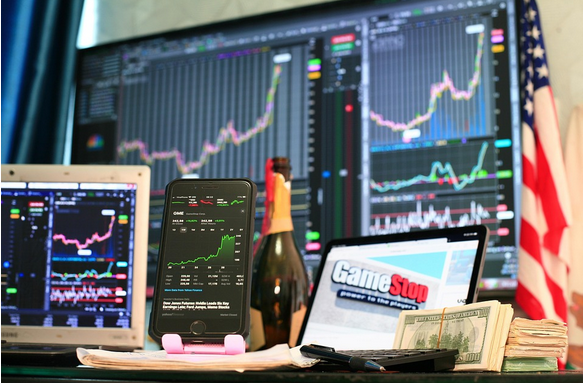Asian markets were broadly up, and the U.S. Dow Jones Industrial Average was sharply down on Thursday, giving global markets a mixed showing. Coming, as it does, against some economic commentary from the usual central banking types, complete with the normal international trade eye,
Asian Markets Gain
A number of major Asian markets were in the black on Thursday. The Asia Dow, which gauges the stock performance of Asia’s 30 top multinationals in the region, ended up 0.23%, or 9.08 points, at 3988.96. In Japan, the Nikkei index was firmly 1.05% up at 34737.12. Hong Kong’s Hang Seng index rose in Asia, climbing 1.61% to 21395.14. The Shanghai Composite Index, meanwhile, lost 0.13% to close at 3,276.18. Elsewhere, Asian markets also closed in green, with a 1.96% rise in BSE Sensex at 78553.20, a 1.58% gain in Singapore’s Straits Times Index at 3720.33, a 0.60% upward move in South Korea’s Kospi index at 2485.26 and 0.78% gain in Australian S&P/ASX 200 index at 7819.10.
US Dow Jones Back in The Red
On Thursday, the Dow Jones Industrial Average fell nearly 1.3% in the US. Most of that slide was fueled by UnitedHealth, whose shares fell more than 20% after the market thought the results released were disappointing. Movement in UnitedHealth shares is the one reason why it had a significant impact on the Dow, which is price-weighted.
Perspective of the Central Banks Towards Institutions & Trade
Takeaways on the economy were some comments from some of the more widely followed CBers. President Trump renewed his criticism of Federal Reserve Chairman Jerome Powell, tweeting that Mr. Powell “could not be fired fast enough” and that “the timid cuts on interest are way too small.” On the same day, the European Central Bank reduced the rate quarter-percentage point for the seventh time in eight meetings.
In response to a question on whether the administration’s scaling up of tariffs would affect the economy, “I guess that it will. A little bit,” Mr. Powell said during a question-and-answer session following a speech on the economic outlook earlier on Wednesday. The Federal Reserve, he said, can “make that choice on the part of them (the Fed) that says hey, we got to get inflation under control at the expense of the labor market.”)
Thursday also saw an account of President Trump speaking with former Fed governor Kevin Warsh about stepping in for Mr. Powell before the end of his term—perhaps Mr. Warsh would like to be another such replacement.
In terms of the interaction between the White House and the Federal Reserve, this may introduce some level of uncertainty for investors who people would otherwise expect would be reassured about US markets witnessing the central bank acting autonomously. Questioning Fed leadership makes Fed questions even more challenging for a market that is still facing trade policy and foreign affairs challenges.
Stakeholder Tug-of-War: Trade Negotiations vs. Corporate Earnings
And so, the pivot to trade was the centerpiece. Fueled by new U.S. limits on shipments to China, Nvidia fell nearly 3% Thursday to continue the losses from the day prior after taking the chipmaker’s findings state. But it came against the backdrop of lower closes for most of the Magnificent Seven tech stocks and little changed action for the Nasdaq Composite index, up just $12 or 0.1% on the day. In the S&P 500 index, the gap was also approximately 0.1% higher.
According to data from the Dow Jones Market that extends back to 1928, Thursday’s session was unprecedented: the Dow closed 1% or lower while the S&P 500 was up 1% or more for an all-time high in same-day flip-flops.
President Trump said Thursday that he anticipates a “tiny problem” in making a deal with the EU to reduce tariffs and other trade barriers, noting that the U.S. has “something everybody wants” — and access to the American consumer. With talk of tariffs now rising to the top of U.S. to-do lists with roughly 15 trading partners, including the E.U. and Japan, U.S. Treasury Secretary Scott Bessent said.
On Thursday, President Trump said that he had talked to the “highest levels” of the Chinese government about a potential tariff-cutting deal.
Earnings were also reported from American Express, Blackstone, and UnitedHealth., the world’s largest contract chip maker, reported first-quarter profit that rose more than expected on Thursday.
Other Key Insights
U.S. government bonds dropped on Thursday, as yields on ten-year Treasurys climbed to approximately 4.325%, negating three days of decline.
WSJ Dollar Index +0.1%. The currency has fallen for six of the past seven trading days, which has economic ramifications worldwide.
Markets were mixed worldwide, with the Stoxx Europe 600 losing some ground and broad gains across Asia.
The U.S. stock and bond markets are closed Friday for Good Friday.






